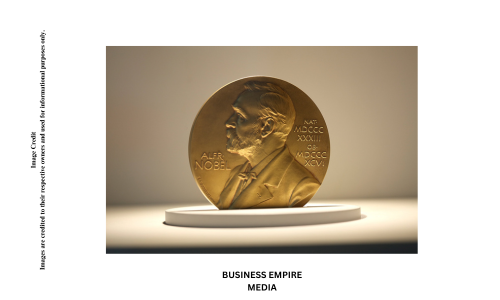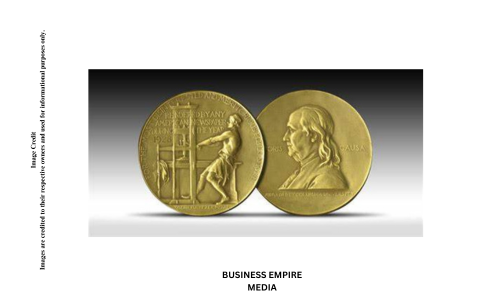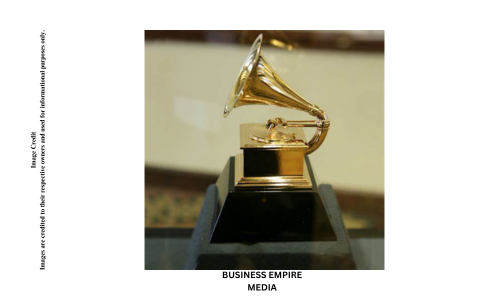Awards serve as a testament to exceptional talent, innovation, and dedication across various domains. From the arts to science, these awards recognize and honor outstanding achievements.
Here’s a look at some of the Top 10 Awards in the World and other celebrated awards globally
1. Nobel Prize

Overview:
The Nobel Prizes are prestigious international awards established by the will of Alfred Nobel, the inventor of dynamite. These awards recognize outstanding contributions to humanity in six categories: Peace, Literature, Chemistry, Physics, Medicine, and Economic Sciences. The prizes are awarded annually on December 10, the anniversary of Nobel’s death, with ceremonies held in Stockholm, Sweden (for all categories except Peace), and Oslo, Norway (for Peace).
Fields:
- Peace: Awarded for efforts to promote peace and resolve conflicts.
- Literature: Given for exceptional literary work.
- Chemistry: Honors groundbreaking achievements in chemistry.
- Physics: Recognizes significant contributions to the field of physics.
- Medicine: Awarded for discoveries that have advanced the medical sciences.
- Economic Sciences: Honors contributions to the field of economics (officially known as the Sveriges Riksbank Prize in Economic Sciences in Memory of Alfred Nobel).
Prize Money:
Each Nobel Prize typically comes with a cash award, which varies from year to year. In recent years, the prize money has been approximately 10 million Swedish kronor (SEK), which is around $1 million USD. The amount is divided if the prize is shared between multiple laureates.
Notable Winners:
- Peace:
- Martin Luther King Jr. (1964) for his role in advancing civil rights.
- Malala Yousafzai (2014) for her activism for girls’ education.
- Literature:
- Gabriel García Márquez (1982) for his influential work in magical realism.
- Toni Morrison (1993) for her powerful novels depicting African American life.
- Chemistry:
- Marie Curie (1911) for her discoveries in radioactivity.
- Frances H. Arnold (2018) for her work on enzyme evolution.
- Physics:
- Albert Einstein (1921) for his discovery of the photoelectric effect.
- James Peebles (2019) for theoretical discoveries in physical cosmology.
- Medicine:
- Alexander Fleming (1945) for his discovery of penicillin.
- David Julius and Ardem Patapoutian (2021) for their discoveries of receptors for temperature and touch.
- Economic Sciences:
- Amartya Sen (1998) for his contributions to welfare economics.
- Paul R. Milgrom and Robert B. Wilson (2020) for improvements to auction theory and inventions.
2. Oscar (Academy Awards)

Overview:
The Academy Awards, commonly known as the Oscars, are prestigious awards presented annually by the Academy of Motion Picture Arts and Sciences (AMPAS). They honor outstanding achievements in the film industry, celebrating excellence in various aspects of filmmaking, including acting, directing, and technical achievements. The awards ceremony is held every year in Los Angeles, California.
Field:
- Best Picture: Awarded to the producers of the film deemed the best overall.
- Best Director: Recognizes the director of the best film.
- Best Actor: Given to the best performance by an actor in a leading role.
- Best Actress: Awarded to the best performance by an actress in a leading role.
- Best Supporting Actor: Recognizes the best performance by an actor in a supporting role.
- Best Supporting Actress: Awarded to the best performance by an actress in a supporting role.
- Best Original Screenplay: Honors the best script written specifically for a film.
- Best Adapted Screenplay: Given for the best screenplay adapted from another source.
- Best Animated Feature: Awarded to the best animated film of the year.
- Best International Feature Film: Recognizes the best film produced outside the United States.
Prize Money:
The Oscars do not come with a monetary award. Winners receive a gold-plated statuette known as the “Oscar” or “Academy Award of Merit.” While there is no direct financial prize, winning an Oscar often significantly boosts the recipient’s career and can lead to increased opportunities and higher earnings.
Notable Winners:
- Best Picture:
- “The Godfather” (1973) for its outstanding cinematic contribution.
- “Parasite” (2020) for its groundbreaking achievement as the first non-English language film to win Best Picture.
- Best Director:
- Steven Spielberg for “Schindler’s List” (1994).
- Kathryn Bigelow for “The Hurt Locker” (2009), the first woman to win Best Director.
- Best Actor:
- Daniel Day-Lewis for “There Will Be Blood” (2008) and “Lincoln” (2013).
- Jack Nicholson for “One Flew Over the Cuckoo’s Nest” (1975) and “As Good as It Gets” (1998).
- Best Actress:
- Meryl Streep for “The Iron Lady” (2012) and “Kramer vs. Kramer” (1980).
- Cate Blanchett for “Blue Jasmine” (2014).
- Best Supporting Actor:
- Heath Ledger for “The Dark Knight” (2008) for his iconic portrayal of the Joker.
- Javier Bardem for “No Country for Old Men” (2007).
- Best Supporting Actress:
- Viola Davis for “Fences” (2016).
- Judy Dench for “Shakespeare in Love” (1998).
3. Pulitzer Prize

Overview:
The Pulitzer Prizes are prestigious awards established in 1917 by Joseph Pulitzer, an American journalist and publisher. These awards recognize excellence in journalism, literature, and musical composition. They are awarded annually by Columbia University in New York City. The Prizes honor achievements in various categories and are considered among the highest accolades in their respective fields.
Fields:
- Journalism: Awards are given for excellence in reporting, including categories such as Public Service, Breaking News Reporting, and Investigative Reporting.
- Books: Recognizes outstanding literary work, including Fiction, Nonfiction, History, Biography, and Poetry.
- Music: Awarded for distinguished musical compositions, including both classical and contemporary works.
Prize Money:
Each Pulitzer Prize carries a cash award of $15,000 USD. In addition to the cash prize, winners receive a certificate and a gold medal, which are symbols of their achievement.
Notable Winners:
- Journalism:
- The Washington Post and The New York Times (2018) for their investigative reporting on sexual harassment.
- Bob Woodward and Carl Bernstein (1973) for their reporting on the Watergate scandal.
- Fiction:
- Colson Whitehead for “The Underground Railroad” (2017), a groundbreaking novel addressing slavery and freedom.
- Toni Morrison for “Beloved” (1988), a profound exploration of slavery and its effects.
- Nonfiction:
- “The Looming Tower: Al-Qaeda and the Road to 9/11” by Lawrence Wright (2007) for its insightful exploration of terrorism.
- “The Immortal Life of Henrietta Lacks” by Rebecca Skloot (2011), which sheds light on the life and legacy of Henrietta Lacks and her contributions to medical research.
- Music:
- Kendrick Lamar for “DAMN.” (2018), making him the first non-classical or jazz artist to win the Pulitzer for Music.
- Stephen Sondheim for his body of work, including “Sweeney Todd” and “Into the Woods,” which have been recognized for their exceptional contributions to musical theater.
4. Grammy Awards

Overview:
The Grammy Awards, presented by the Recording Academy, are among the most prestigious accolades in the music industry. Established in 1959, the Grammys honor outstanding achievements in various musical genres and categories. The annual ceremony is held in Los Angeles, California, and celebrates exceptional work in recording, songwriting, and performance.
Fields:
- Album of the Year: Awarded for the best album across all genres.
- Record of the Year: Recognizes the best single recording or track.
- Song of the Year: Honors the best songwriters for a single song.
- Best New Artist: Given to a new artist who has made a significant impact in their debut year.
- Best Pop Solo Performance: Awarded for a solo performance in pop music.
- Best Pop Duo/Group Performance: Recognizes a duo or group’s performance in pop music.
- Best Rock Album: Honors the best rock album.
- Best Rap Album: Given for the best rap album.
- Best Country Album: Awarded for the best country album.
- Best Classical Album: Recognizes excellence in classical music.
Prize Money:
The Grammys do not offer cash prizes. Winners receive a gramophone trophy, known as the Grammy, which symbolizes their achievement. The award itself is highly regarded and can significantly enhance an artist’s career and opportunities.
Notable Winners:
- Album of the Year:
- Adele for “21” (2012) and “25” (2017).
- Taylor Swift for “Fearless” (2010) and “Folklore” (2021).
- Record of the Year:
- Whitney Houston for “I Will Always Love You” (1994).
- Billie Eilish for “Bad Guy” (2020).
- Song of the Year:
- Bob Dylan for “Like a Rolling Stone” (1965).
- Beyoncé for “Single Ladies (Put a Ring on It)” (2010).
- Best New Artist:
- Norah Jones (2003).
- Billie Eilish (2020).
- Best Pop Solo Performance:
- Lady Gaga for “Bad Romance” (2011).
- Harry Styles for “Watermelon Sugar” (2021).
- Best Pop Duo/Group Performance:
- Daft Punk featuring Pharrell Williams for “Get Lucky” (2014).
- Silk Sonic for “Leave the Door Open” (2022).
- Best Rock Album:
- Foo Fighters for “Wasting Light” (2012).
- Greta Van Fleet for “The Battle at Garden’s Gate” (2022).
- Best Rap Album:
- Kendrick Lamar for “To Pimp a Butterfly” (2016).
- Cardi B for “Invasion of Privacy” (2019).
- Best Country Album:
- Chris Stapleton for “Traveller” (2016).
- Kacey Musgraves for “Golden Hour” (2019).
- Best Classical Album:
- Yo-Yo Ma for “The Six Cello Suites” (2018).
- Gustavo Dudamel for “The Los Angeles Philharmonic’s ‘Mahler Symphony No. 8′” (2021).
5. Fields Medal
Overview:
The Fields Medal is one of the most prestigious awards in mathematics, often regarded as the “Nobel Prize of Mathematics.” Established in 1936 by Canadian mathematician John Charles Fields, the medal is awarded every four years to mathematicians under the age of 40 who have made significant contributions to the field. The award is presented by the International Mathematical Union (IMU) during the International Congress of Mathematicians (ICM).
Field:
- Mathematics: The Fields Medal recognizes outstanding achievements and breakthroughs in the field of mathematics. It is awarded for exceptional contributions that have advanced mathematical knowledge and theory.
Prize Money:
The Fields Medal carries a cash award, which has varied over the years. As of recent awards, the prize money is approximately 15,000 Canadian dollars (CAD), which is about 11,000 USD. The medal itself is a gold coin featuring a portrait of Archimedes and is considered a significant honor in the mathematical community.
Notable Winners:
- Andrew Wiles (1994): Awarded for his proof of Fermat’s Last Theorem, a problem that had been unsolved for over 350 years.
- Maryam Mirzakhani (2014): The first female winner, recognized for her work in geometry and dynamical systems, particularly for her contributions to the understanding of Riemann surfaces.
- Jean-Pierre Serre (1954): Recognized for his work in topology and number theory, including contributions to the theory of modular forms and arithmetic geometry.
- Grigori Perelman (2006): Awarded for his proof of the Poincaré Conjecture, a fundamental problem in topology. Perelman declined the medal.
- Manjul Bhargava (2014): Recognized for his contributions to number theory, particularly for his work on the geometry of numbers and arithmetic statistics.
6.Booker Prize
Overview:
The Booker Prize, formally known as the Booker Prize for Fiction, is one of the most prestigious literary awards in the English-speaking world. Established in 1969, it is awarded annually to the best original novel written in English by a citizen of the Commonwealth of Nations, Ireland, or Zimbabwe. The prize aims to promote and celebrate exceptional literary works and elevate the status of the novel as a form of art.
Field:
- Fiction: The Booker Prize is awarded specifically for outstanding novels, recognizing excellence in storytelling, narrative technique, and literary merit.
Prize Money:
The Booker Prize comes with a cash award of £50,000 (approximately $60,000 USD). The prize not only provides financial support but also significantly enhances the winner’s visibility and reputation in the literary world.
Notable Winners:
- Salman Rushdie (1981): Awarded for “Midnight’s Children,” a novel that combines magical realism with a historical narrative of post-colonial India.
- Margaret Atwood (2000): Recognized for “The Blind Assassin,” a multi-layered narrative blending myth, history, and fiction.
- Hilary Mantel (2009, 2012): Won for “Wolf Hall” and “Bring Up the Bodies,” historical novels exploring Thomas Cromwell’s life and political machinations in Tudor England.
- Julian Barnes (2011): Awarded for “The Sense of an Ending,” a novel that delves into themes of memory and identity.
- Yiyun Li (2020): Recognized for “Where Reasons End,” a poignant exploration of grief and loss, reflecting the universal human experience through a personal lens.
7. Man, Booker International Prize
Overview:
The Man Booker International Prize, established in 2005, is an esteemed literary award that recognizes the best work of fiction translated into English. Unlike the Booker Prize, which honors books originally written in English, the Man Booker International Prize celebrates the global diversity of literature by rewarding exceptional translations. The prize is awarded biennially to a book translated into English and published in the UK.
Field:
- Fiction: The award focuses on works of fiction that have been translated from their original language into English. It celebrates the art of translation and the contribution of translators in making international literature accessible to English-speaking audiences.
Prize Money:
The prize includes a cash award of £50,000 (approximately $60,000 USD), which is split between the author and the translator. This financial support highlights the importance of both the creative work and the translation process.
Notable Winners:
- Han Kang (2016): Awarded for “The Vegetarian,” translated by Deborah Smith. The novel, a poignant exploration of family, identity, and societal expectations, garnered international acclaim for its unique narrative style and thematic depth.
- David Grossman (2017): Recognized for “A Horse Walks into a Bar,” translated by Jessica Cohen. Grossman’s novel delves into the complexities of human emotion and the impact of trauma, showcasing his masterful storytelling.
- László Krasznahorkai (2015): Awarded for “Satantango,” translated by Georgina Lloyd. Krasznahorkai’s work is known for its challenging structure and deep philosophical themes, and this prize highlighted the significance of his literary contributions.
- Yoko Ogawa (2021): Recognized for “The Memory Police,” translated by Stephen Snyder. The novel’s exploration of memory, loss, and totalitarianism resonated strongly with international audiences and critics alike.
- Georgi Gospodinov (2023): Awarded for “Time Shelter,” translated by Angela Rodel. The novel’s imaginative approach to the concept of time and memory received widespread acclaim for its originality and depth.
8. Turing Award
Overview:
The Turing Award, established in 1966 by the Association for Computing Machinery (ACM), is one of the highest honors in the field of computer science. Named after the British mathematician and logician Alan Turing, the award recognizes individuals for their substantial and lasting contributions to the computing community. It is often considered the “Nobel Prize of Computing.”
Field:
- Computer Science: The Turing Award honors exceptional achievements in the field of computer science. This includes advances in algorithms, programming languages, computer systems, artificial intelligence, and more, reflecting the broad scope of computing and its impact on technology and society.
Prize Money:
The Turing Award comes with a cash prize of $1 million USD. This monetary award, funded by Google, reflects the significant impact and prestige associated with the accolade.
Notable Winners:
- John McCarthy (1971): Awarded for his pioneering work in artificial intelligence and for inventing the Lisp programming language, which greatly influenced AI research and development.
- Donald D. Knuth (1974): Recognized for his work on algorithm analysis and for his multi-volume series “The Art of Computer Programming,” which has become a foundational text in the field.
- Vinton Cerf and Robert Kahn (2004): Honored for their work on the development of the TCP/IP protocols, which are fundamental to the functioning of the Internet.
- Jeffrey Ullman and Alfred Aho (2020): Awarded for their influential contributions to algorithms and programming language theory, particularly for their work on the Aho-Ullman algorithms and the development of compiler design principles.
- Tim Berners-Lee (2016): Recognized for inventing the World Wide Web, a transformative technology that has profoundly impacted global communication, information access, and commerce.
9. Pritzker Architecture Prize
Overview:
The Pritzker Architecture Prize, established in 1979 by the Hyatt Foundation, is one of the most prestigious awards in the field of architecture. Often referred to as the “Nobel Prize of Architecture,” it honors a living architect or architects whose work has made a significant impact on the field of architecture and the built environment. The prize aims to recognize and celebrate architectural excellence and innovation.
Field:
- Architecture: The prize is awarded for exceptional contributions to the field of architecture. It recognizes architects who have demonstrated a consistent commitment to high standards of design and have had a significant influence on the practice and perception of architecture.
Prize Money:
The Pritzker Architecture Prize includes a cash award of $100,000 USD, which is presented alongside a bronze medallion. This financial award reflects the importance and recognition of the recipient’s contributions to architecture.
Notable Winners:
- Frank Gehry (1989): Awarded for his innovative and sculptural approach to architecture, including works like the Guggenheim Museum in Bilbao and the Walt Disney Concert Hall in Los Angeles.
- Zaha Hadid (2004): Recognized for her groundbreaking and futuristic designs, including the MAXXI Museum in Rome and the London Aquatics Centre, making her the first woman to receive the prize.
- Tadao Ando (1995): Honored for his minimalist and spiritually evocative designs, including the Church of the Light in Osaka and the Naoshima Contemporary Art Museum.
- Rem Koolhaas (2000): Awarded for his influential and innovative work in architecture and urban design, including the Seattle Central Library and the Prada Store in Milan.
- Bjarke Ingels (2022): Recognized for his creative and sustainable approach to architecture, including projects like the 8 House in Copenhagen and the Vancouver House.
10. Lasker Award
Overview:
The Lasker Awards, established in 1945 by the Albert and Mary Lasker Foundation, are prestigious honors in the field of medical science. Often referred to as “America’s Nobels,” these awards recognize outstanding achievements in medical research, with a focus on contributions that have had a significant impact on improving human health. The awards are presented annually and are considered one of the most respected honors in the medical and scientific communities.
Field:
- Medical Science: The Lasker Awards are given for exceptional contributions to the field of medical science, including advancements in basic medical research, clinical research, and public health.
Prize Money:
Each Lasker Award comes with a cash prize of $250,000 USD, which is divided among the awardees if there are multiple winners in a category. The prize money reflects the significant impact of the recipients’ contributions to medical science.
Notable Winners:
- James P. Allison and Tasuku Honjo (2018): Awarded for their groundbreaking work in cancer immunotherapy, which led to the development of immune checkpoint inhibitors that have revolutionized cancer treatment.
- Roger Penrose (2020): Recognized for his pioneering work in understanding black holes and the nature of space and time, which has had a profound impact on theoretical physics and cosmology.
- Françoise Barré-Sinoussi and Luc Montagnier (2008): Honored for their discovery of the HIV virus, which has been crucial in advancing the understanding and treatment of AIDS.
- David Baltimore, Howard Temin, and Renato Dulbecco (1975): Awarded for their discoveries related to cancer research, including the role of viruses in cancer development.
- Elizabeth Blackburn, Carol Greider, and Jack Szostak (2009): Recognized for their discoveries on the structure and function of telomeres, which has provided key insights into aging and cancer.
